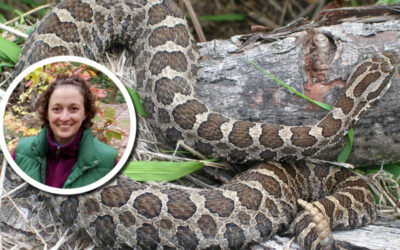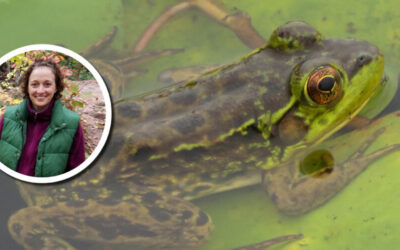Wetland Coffee Break
The Wetland Coffee Break series helps keep our community of wetland lovers connected and learning about wetlands throughout the year, from anywhere! Bring your coffee and learn about wetlands, the plants and animals that call them home, and the many natural benefits they provide to our communities. Sessions are held on Zoom and feature time for audience Q&A.
See below for a list of upcoming presentations and to register. Once you register, you’ll receive an automatic email including the URL link and password you’ll need to access the meeting. We record and post each presentation so you can watch any that you missed live. You’ll find links to these recordings below, and you can also find them on our Facebook page.
We are grateful to all of the presenters for sharing their knowledge and expertise and to everyone interested in learning more about wetlands! If you are interested in giving a Wetland Coffee Break presentation, or if you have a wetland topic you’d like to see covered, please contact Katie.Beilfuss@wisconsinwetlands.org.
We are now able to provide attendance verification to Wetland Coffee Break audience members who attend the live sessions and request this service. We created this mechanism in response to requests from members of the Wetland Coffee Break audience who would like to apply their Wetland Coffee Break learning to their continuing education or certification requirements. Learn more about how to receive attendance verification here.

Register for a Wetland Coffee Break
The Wetland Coffee Break is on winter break, back in 2026. Check back in later this winter for upcoming programs, and subscribe to our every-other-week Wetland News email to get our calendar of events, which includes Wetland Coffee Break episoded. Meanwhile, consider attending the 2026 Wetland Science Conference, happening Feb. 24-26 in Baraboo/Wisconsin Dells, for more great information about wetlands.
Watch previous presentations
Click “Older Entries” below to see more past presentations, or view our Google Sheet index of past presentations here.
Wetland Coffee Break: The eastern massasauga: Wisconsin’s wetland rattlesnake
The eastern massasauga, one of two rattlesnake species found in Wisconsin, is incredibly rare globally and only remains at eight sites in the state.
Wetland Coffee Break: Reciprocal relationships with restoration and protection efforts
Learn about the ecological and cultural significance of the newly created Wequiock Creek Natural Area in Brown County, WI, and how it was protected.
Wetland Coffee Break: Mink frog calling surveys
The mink frog, a Species of Special Concern, is a special focus due to its rarity, susceptibility to climate change in Wisconsin, and unusual calling pattern.
Wetland Coffee Break: Spur Lake: A long and unfinished journey
Carly and Nathan discuss the efforts of a collaborative working group to understand why wild rice has disappeared from Spur Lake and explore options for bringing it back.
Wetland Coffee Break: Wetland conservation practices for landowners
Learn from Tally Hamilton and Gretchen Skudlarczyk—wetland experts with years of experience working with private landowners—about some of the practices and programs available to restore and enhance wetlands on private lands.
Wetland Coffee Break: Fascinating species frequenting ephemeral ponds
Learn more about the multi-year citizen science amphibian-focused research project studying ephemeral ponds in east central Wisconsin from citizen-scientist Greg Burns.






